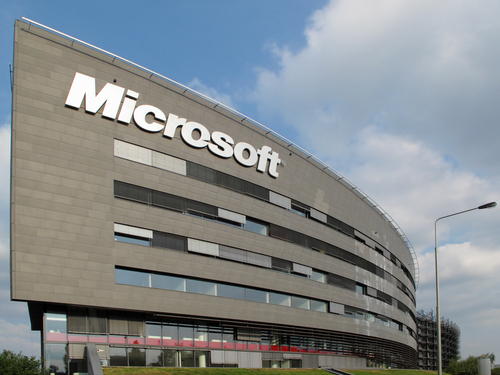Microsoft executives have moved quickly to reassure staff who are concerned over the impending retirement of CEO Steve Ballmer, as well as the company-wide reorganisation.
Redmond reportedly told workers that Ballmer’s reorganisation plan will go ahead, and reiterated it is committed to the changes.
Microsoft Jitters
Late last week, following the news that Steve Ballmer intends to retire within the next twelve months, Microsoft senior managers emailed staff to say they remain committed to Ballmer’s vision and his planned reorganisation. That is according to Bloomberg, which cited three people with knowledge of the matter as its source.
 Last month, Ballmer revealed a significant strategic overhaul and reorganisation of the company, which will see it consolidate into eight new divisions: engineering, marketing, business development and evangelism, advanced strategy and research, finance, HR, legal, and COO.
Last month, Ballmer revealed a significant strategic overhaul and reorganisation of the company, which will see it consolidate into eight new divisions: engineering, marketing, business development and evangelism, advanced strategy and research, finance, HR, legal, and COO.
The idea is to bring the various units together to create a tighter organisation, that is able to compete more effectively in the mobile space and with Internet services, and shift away from its reliance on software and the declining PC industry.
But there is reportedly concern that the double whammy of changes at Microsoft could tempt key staff and executives to exercise their stock options and leave after their bonuses are awarded at the end of this month.
Employees are said to be in the process of moving into new divisions and roles, but apparently don’t know if they will be asked to move again under new management, Bloomberg reported one of the people with knowledge of the matter as saying.
And to make matters worse, recruiters and competitors are said to be tentatively approaching some Microsoft executives as the search for a new CEO continues. Microsoft has reportedly refused to comment on the executive emails.
Ballmer Legacy
“There’s going to be more confusion near-term,” Sid Parakh, an analyst at McAdams Wright Ragen in Seattle was quoted as saying. “It just seems like now there’s the question of how’s the new person going to look at these changes. From an employee perspective, they are at a point of ‘OK, now what do we do here?’”
Meanwhile the debate about Steve Ballmer’s legacy during his thirteen years in charge of Microsoft continues.
Earlier this year, former employee Joachim Kempin claimed Microsoft had predicted many of the major developments in technology in the last decade (i.e. tablets, smartphones, social media etc), but failed to capitalise on any of them. He also alleged that Ballmer used bullying tactics to eject anyone he deems to be a threat.
Microsoft chairman Bill Gates also declined to give Ballmer his full backing when he admitted in February that Redmond had made some mistakes in its mobile strategy. Gates did however point out a number of Ballmer’s achievements since he assumed control, including the Xbox gaming console.
Microsoft has witnessed a number of executives leaving their offices recently. This includes the departure of Microsoft veteran and Windows Live president Steven Sinofsky (in late 2012), after he reportedly clashed with Ballmer and other executives.
And in July 2013, Microsoft’s Interactive Entertainment Business boss Don Mattrick left, one month after Chief Financial Officer Peter Klein stepped down. Kurt DelBene, a key member of the Office team, is also retiring, and Ballmer’s senior advisor Craig Mundie stepped down from the leadership team to do a “special project” for the Microsoft CEO.
How well do you know Microsoft? Test yourself with our quiz!




